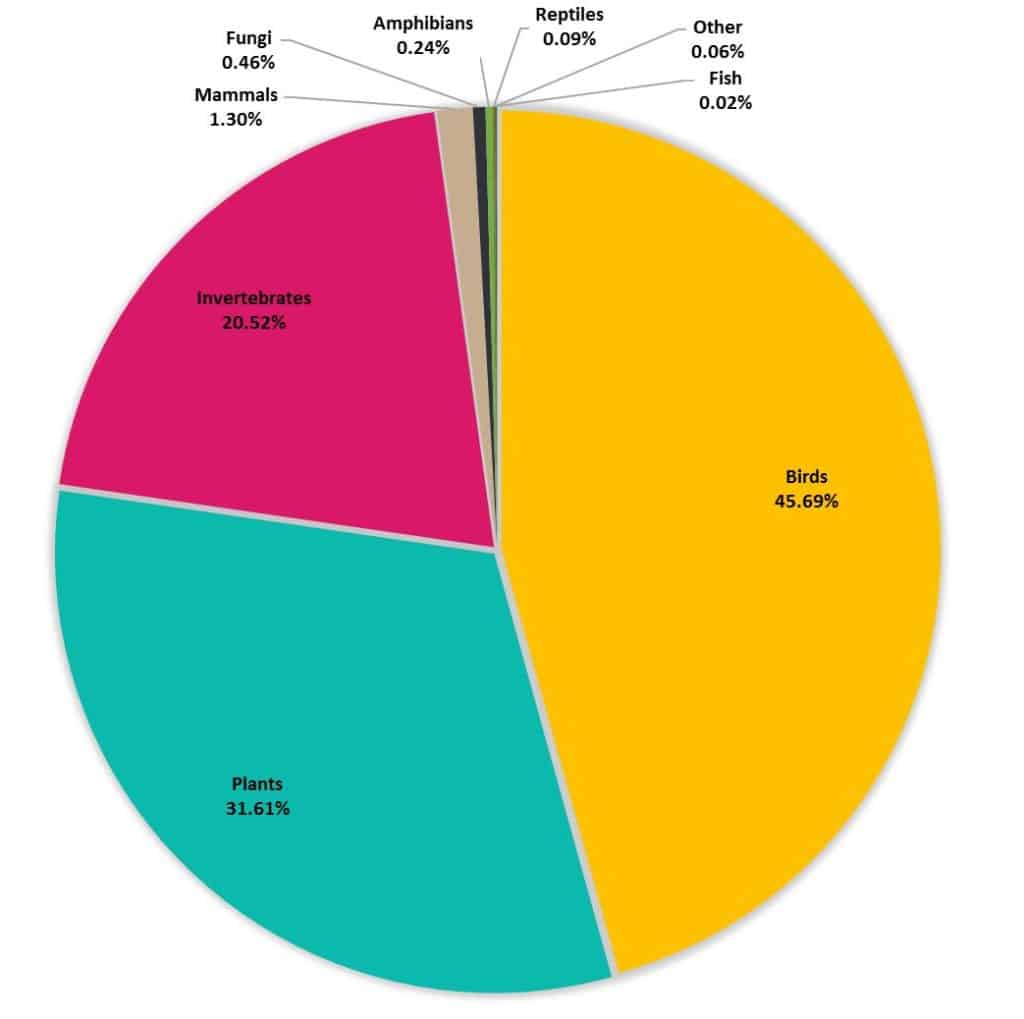The wealth of urban species that live in the capital give Londoners a daily connection with nature. These species also come under particular urban pressures. Knowing which species live alongside us, where they are and the habitats they need, aids efforts to protect, conserve and engage people with the capital’s wildlife.

Data correct as of May 2021
This pie chart illustrates the proportions of records in our database according to taxonomic group. You’ll notice that while plants and birds are relatively very well recorded, other groups are less well represented and need more survey work to better reflect the true extent of their populations.
Recording effort always needs to be taken into account, for example, active involvement of a particular recording society will boost a taxonomic group’s record count. Also some species groups are more difficult to record than others.
What species data do we hold?
We hold in excess of an impressive 8 million species records, from a wide range of organisations and individuals, from expert volunteer recorders, to professional surveyors, to keen-eyed members of the public.
This baseline of biodiversity information for the capital includes sub-sets that are particularly useful for decision-makers, including designated species records and invasive non-native species records.
Which species records are of interest to GiGL?
We are interested in records of any species positively identified in Greater London. This includes ‘common or garden’ as well as rarer species. See our Submit Records section for information on how to do this.
Many of our records come from expert recording groups or professional surveyors. We believe that encouraging recording and the experts of the future is also important, so also accept records from the public. Read our Joy of Recording article series to hear from dedicated species recorders.
We take validation (ensuring the record is sensible) and verification (ensuring the record is correctly identified) seriously. Correct identification, especially of rare or protected species, can have consequences for conservation and management. This is explained in our validation and verification policy.
The GiGL Advisory Panel and the recording community in London includes species experts who check identification of unverified records in the GiGL database, beginning with priority species. Other records are verified by the expertise of the data provider. GiGL can help with this process by initially digitising records to speed up checking.
Read our newsletter article for more information on this process.
If you already pass on your species records to a recording group or local authority who is one of our partners, we may already receive your data. Get in touch and we can check, to avoid duplication.
